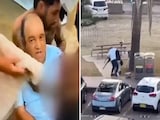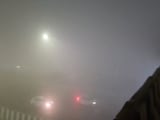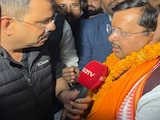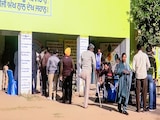A Kuki frontal group in Manipur has strongly condemned the filing of a police case against one of its key members over his comment that they would start a "self-government whether the centre recognises it or not".
Muan Tombing, the general secretary of the Indigenous Tribal Leaders' Forum (ITLF), faces several serious charges under the Indian Penal Code (IPC) including sedition and conspiring to wage war against the Indian government.
Condemning the police action over a comment that sought a solution under the Constitution to the Manipur crisis, the ITLF in a statement today said a separate administration from the Manipur government "has always been our demand since the start of the (ethnic) conflict in May, and we have also made it clear that any political solution should come under the Constitution of India. Therefore, the charges of sedition and conspiring to wage war against the Indian government are totally baseless."
During a protest in Manipur's hill district Churachandpur on Wednesday, Mr Tombing had told reporters, "It has been over six months and nothing has been done regarding our demand for a separate administration from the Manipur government. So if our voice is not heard within a couple of weeks, we will set up our self-government. Irrespective of whether the centre recognises it or not, we will go ahead."
Just days after the outbreak of ethnic violence in May, 10 tribal MLAs including those from the ruling BJP had demanded a total separation from Manipur. The hill-majority Kuki tribes have said the state government led by Chief Minister N Biren Singh is dominated by the valley-majority Meitei community.
Muan Tombing, the general secretary of the Indigenous Tribal Leaders' Forum (ITLF), faces several serious charges
Hours after the ITLF statement today, a lawyer in the state capital Imphal told NDTV on phone the ITLF member "openly challenged" the centre that they would run a self-government even without recognition.
"Such a demand is extremely serious and dangerous. They cannot deflect by claiming to be pushing their cause under the Constitution because they have clearly stated they do not care whether the centre agrees with them or not," said the lawyer, requesting anonymity. "What will be left of the country if any random group declares something like this whenever they want?" the lawyer said.
Explaining why the Kuki tribes want a separate administration, the ITLF in the statement said "innocent Kuki-Zo civilians were butchered in Meitei-dominated areas including the capital, and those that survived have been chased out with no possibility of going back."
The Kuki tribes have alleged the Biren Singh government has branded them as "narco terrorists" and illegal immigrants from junta-ruled Myanmar, which led to insecurity among the Meiteis and the subsequent violence that has claimed over 180 lives.
The ITLF in the statement alleged the state government and police have "openly sided with the Meitei community, with commandos leading attacks on tribal villages." The Kuki group alleged non-profits working in the development sector, "aided by the Chief Minister", have been trying to divert funds.
Manipur's hill district Churachandpur is home to a large number of people from the Kuki tribes
"... None of them worked for tribal welfare... Tribal government employees and our MLAs can no longer reach Imphal and are unable to perform their duties for their constituencies," the ITLF said in the strongly worded statement, explaining why it needs a separate secretariat for Kuki officers and MLAs to continue working for their people in the absence of a timeline from the centre to complete the steps required for granting a separate administration.
"Maligning State Forces"
The government and valley-based civil society groups have, however, refuted the allegation of misuse of state machinery on the grounds that the Kuki tribes have been stopping the state forces from doing their duty and maligning the state forces, and instead working closely with 25 Kuki insurgent groups that have signed the suspension of operations (SoO) agreement with the centre and the state government.
The valley residents allege attacks by Kuki insurgents on Meitei villages and homes in and near the foothills can only be stopped by the security forces.
The valley-majority Meiteis live in Manipur's capital Imphal and surrounding districts classified as valley areas
"Every time police forces go to the districts to bring back law and order, working together with the thousands of central forces stationed in Manipur, Kuki insurgents and their frontal groups prevent the police from doing their job. They keep raising baseless allegations, while attacking the police. The Kukis aren't letting the police work properly in the first place. Maybe they should see from that lens, too," a senior police officer who was in the India-Myanmar border town Moreh, where an officer was shot by an insurgent sniper last month, told NDTV on phone, requesting anonymity.
The ethnic unrest in Manipur began on May 3 following a protest by the Kuki tribes against the Meiteis' demand for inclusion under the Scheduled Tribes (ST) category. Though the immediate cause of the ethnic clashes is said to be over the Meities' demand for ST tag, many leaders including Home Minister Amit Shah and Foreign Minister S Jaishankar have said entry of illegal immigrants is one of the main factors behind the unrest in the northeast state, which is ruled by the BJP.
India's anti-terror body the National Investigation Agency (NIA) has said it is looking into an alleged transnational conspiracy involving terror groups hiding in Bangladesh, Myanmar and Manipur to exploit the ethnic violence in the northeast state.
The centre on Monday extended by five years the ban on nine Meitei extremist groups and their associate organisations, which mostly operate in Manipur, for anti-national activities and launching attacks on security forces.















